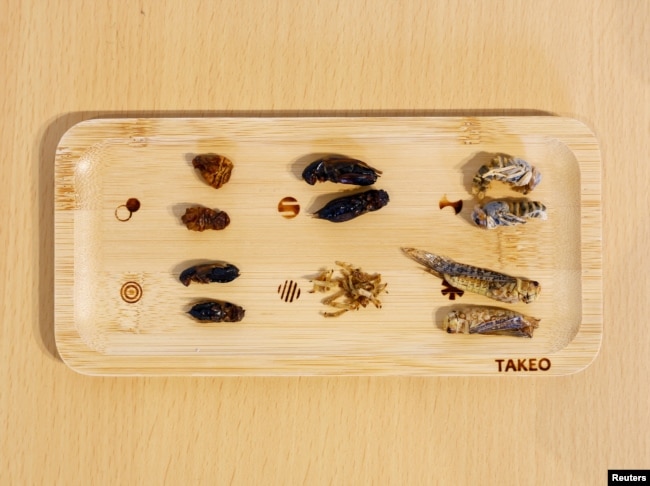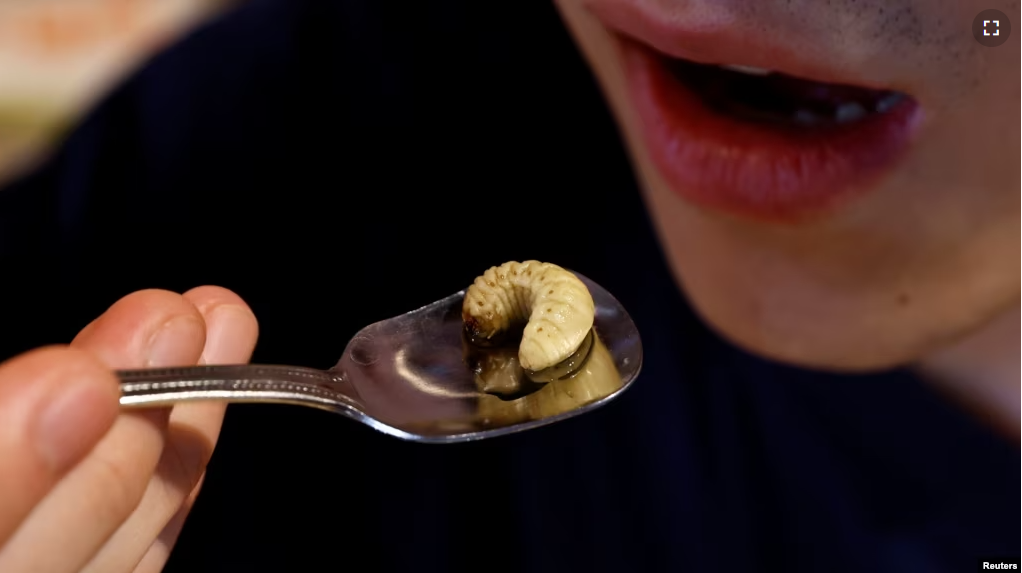More restaurants in Japan are offering bugs in their dishes.
On a recent vacation in Tokyo, Takumi Yamamoto ate a special lunch of cricket curry and silkworm sashimi, which is usually made with raw fish. He drank a water bug cider.
The 26-year-old office worker is one of many people around the world with a growing interest in entomophagy, or the practice of eating insects. Bugs are slowly becoming more usable as a food source.
Yamamoto said he sometimes ate grasshoppers dipped in soy sauce as a child. In Tokyo, he ate insect foods at Take-Noko cafe, which serves many bug dishes.
“It’s fun to select from a wider variety of dishes,” Yamamoto said. “Everything was tasty. In particular, the water bug cider was quite refreshing … like a green apple.”
Entomophagy started to be taken seriously after the United Nations declared bugs a good source of protein to feed a growing world population. With livestock farming’s effects on climate change and world hunger issues from weather and war, there has been more interest in the nutrition bugs can provide.

Some people think eating insects is just gross. But Japan has a rich history of using insects as food.
Grasshoppers, silkworms and wasps were traditionally eaten in areas of the country with little meat and fish. It was a practice that grew in popularity because of food shortages during and after World War II, said Take-Noko manager Michiko Miura.
“Recently, there have been advances in rearing things like crickets and mealworms for food, so the possibility of using insects as ingredients is really growing,” she added. Several companies in Japan sell cakes and snacks made from cricket flour.
Interest has also grown at Take-Noko, which is often fully reserved on weekends.
The restaurant’s curry contains crickets in meatball form. The “sashimi” is the left-over shell of silkworms, and the cider contains water bug extract and is topped with a whole insect.
Takeo Saito started the restaurant. He also has a packaged food company that offers more than 60 kinds of bug foods, from scorpions to tarantulas.
“Our aim is not for insects to be something separate, but to be enjoyed at the same table as vegetables, fish, and meat,” Saito said.
I’m Dan Novak.
Dan Novak adapted this story for VOA Learning English based on reporting by Reuters.
_______________________________________
Words in This Story
cider — n. a drink made from apples
gross — adj. very disgusting
practice — n. to do something again and again in order to become better at it
manager — n. someone who is in charge of a business, department, etc.
rear — v. to take care of
snack — n. a small amount of food eaten between meals
reserve — v. to make arrangements so that you will be able to use or have at a later time
extract — v. to remove by pulling it out or cutting it out
package — n. a box or large envelope that is sent or delivered usually through the mail or by another delivery service
